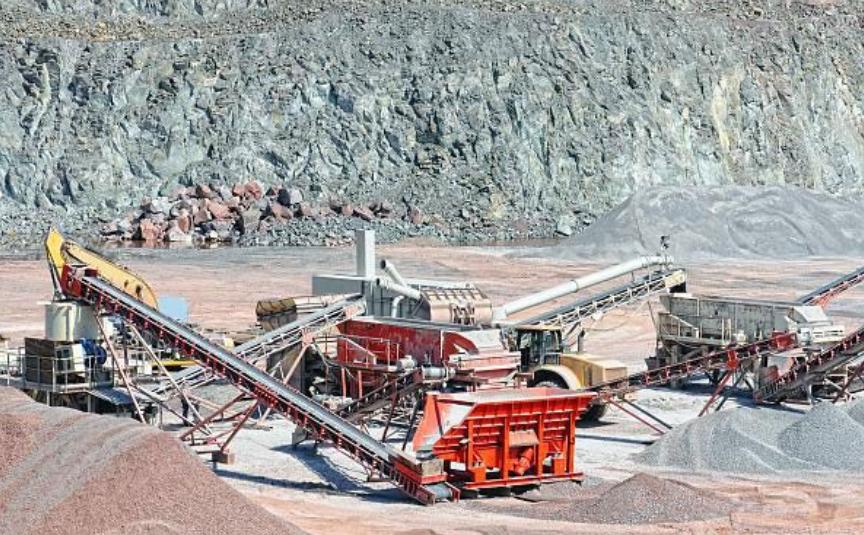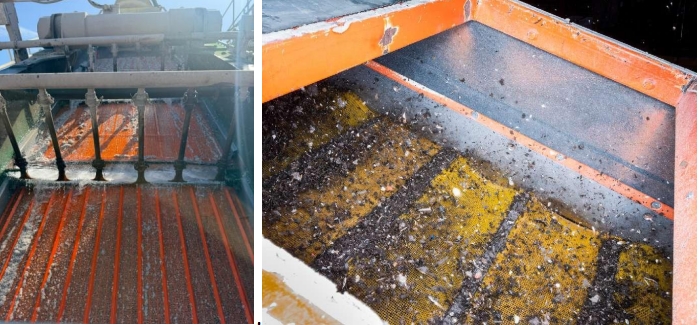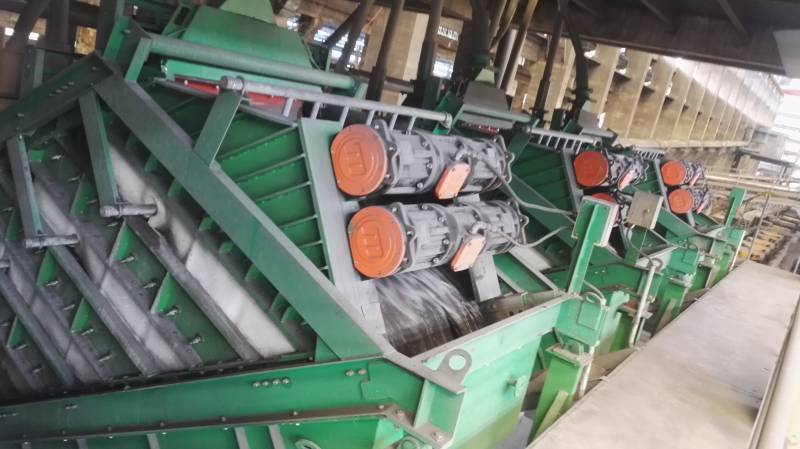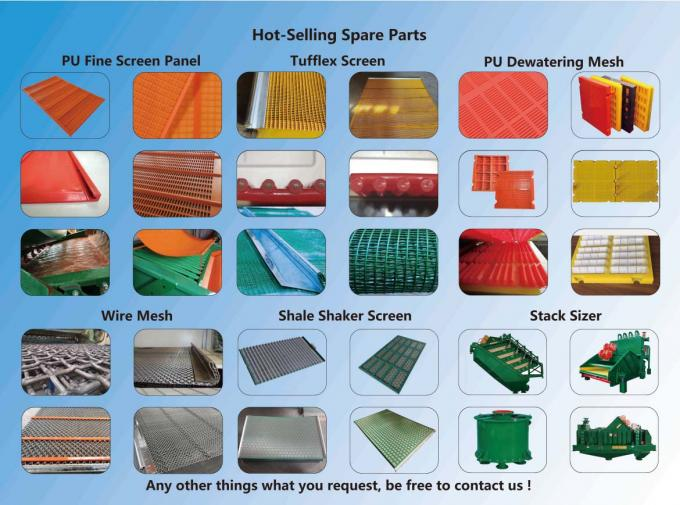How Wear-Resistant, Corrosion-Resistant Screens Enhance Industrial Efficiency and Reduce Costs
Introduction
Screen mesh is a core component of industrial material separation, playing a pivotal role in productivity, product quality, and operational costs. Traditional metal screen mesh struggles with inherent limitations—poor wear resistance, susceptibility to corrosion, and frequent clogging—making it ill-suited for the complex operating conditions of mining, chemical processing, and sand/gravel plants. Polyurethane screen mesh, by contrast, offers exceptional wear resistance, corrosion resistance, and high screening efficiency, emerging as the preferred solution across these industries. This article provides a comprehensive guide to polyurethane screen mesh, detailing its adaptive advantages, application guidelines, and maintenance tips for three key scenarios, helping businesses make informed selections and unlock cost-saving potential.

I. Mining Scenario: A Wear-Resistant Solution for High-Intensity Operations
Mining operations face unique challenges: high material hardness (e.g., granite), 24/7 continuous operation, and outdoor environments prone to rust and corrosion. These conditions lead to frequent metal screen replacements, compromised screening accuracy, and increased downtime—all of which drive up operational costs.
Adaptive Advantages of Polyurethane Screen Mesh in Mining
- Superior Wear & Impact Resistance: With a hardness rating of Shore A90+, polyurethane screen mesh has a wear rate only 1/3–1/5 that of metal screens. Its service life extends to 3–5 years, drastically reducing replacement frequency.
- Exceptional Anti-Clogging Performance: The elastic, self-cleaning design minimizes particle adhesion, reducing clogging by over 80% and maintaining screening efficiency above 95% even during prolonged operation.
- Strong Weather Resistance: Polyurethane is rust-free and non-degradable, performing reliably in temperatures ranging from -40°C to 80°C—ideal for harsh outdoor mining environments.
Application Guidelines for Mining
- Selection Recommendations: For coarse crushing (≥50mm), use 20-30mm thickened screen plates; for fine crushing (5-20mm), opt for high-precision screens with a tolerance of ±0.5mm.
- Installation Notes: Ensure tight contact between the screen mesh and frame, leaving 3-5mm of expansion space to accommodate thermal changes. Regularly inspect and tighten fastening bolts to prevent vibration-related damage.

II. Chemical Processing Scenario: A Safety Solution for Corrosive Environments
Chemical processing plants handle materials often containing acidic or alkaline solutions (e.g., ammonium sulfate) with high temperatures and viscosity. Metal screen mesh is prone to corrosion and breakage, which can contaminate materials, create safety hazards, and disrupt production.
Adaptive Advantages of Polyurethane Screen Mesh in Chemical Processing
- Superior Corrosion Resistance: Polyurethane withstands strong acids and alkalis without oxidation or cracking, maintaining structural integrity in harsh chemical environments.
- Safety & Compatibility: Its metal-free composition prevents unwanted reactions with materials, and its non-toxic, odorless properties make it suitable for food-grade chemical raw materials.
- Effective Handling of Complex Materials: At temperatures ≤80°C, polyurethane retains optimal flexibility—neither too hard nor too soft—minimizing adhesion of high-viscosity materials and ensuring smooth screening.
Application Key Points for Chemical Processing
- Selection Recommendations: For highly corrosive materials, choose polyurethane screen mesh with anti-corrosion coatings; for high-temperature applications, select heat-resistant modified mesh.
- Maintenance Tips: Rinse the screen mesh with clean water immediately after use to remove residual chemicals. Store spare screens in a dry, well-ventilated area away from direct sunlight and corrosive gases.
III. Sand and Gravel Plant Scenario: A High-Efficiency, Energy-Saving Solution for High Loads
Sand and gravel plants typically handle daily outputs of thousands of tons, with high silt content leading to frequent screen clogging. Metal screens are heavy, consuming significant energy and accelerating equipment wear—adding to operational costs.
Adaptive Advantages of Polyurethane Screen Mesh in Sand and Gravel Plants
- High-Efficiency Anti-Clogging: Trapezoidal or rectangular apertures combined with a self-cleaning design reduce clogging rates to less than 10% of metal screens, boosting screening efficiency by 20%-30%.
- Lightweight & Energy-Saving: Polyurethane screen mesh weighs only 1/2–1/3 of metal screens, reducing energy consumption by over 15% and minimizing wear on vibrating equipment.
- Strong Fatigue Resistance: The reinforced skeleton design enhances durability, extending the service life by 2-3 times compared to traditional metal screens.
Application Guidelines for Sand and Gravel Plants
- Selection Recommendations: Use large-aperture screens for coarse sand (10-50mm); opt for fine-mesh screens for fine sand dewatering (0.1-5mm).
- Installation Tips: Maintain moderate tension during installation to balance screening efficiency and mesh longevity. Periodically inspect for localized wear and replace damaged sections promptly.

IV. General Selection & Maintenance Guide for Polyurethane Screen Mesh
Selection Principles
- By Material Properties: Choose thickened mesh for wear-intensive applications, specialized corrosion-resistant mesh for chemical environments, and high-elasticity mesh for anti-adhesion needs.
- By Screening Requirements: Use large-aperture mesh for coarse screening, high-precision mesh for fine screening, and high-air-permeability mesh for dewatering tasks.
- By Equipment Compatibility: Ensure the screen mesh matches the vibrating screen’s model, frequency, and dimensions to avoid operational issues.
Maintenance Key Points
- Clean the screen mesh regularly using non-abrasive tools to avoid damaging the surface.
- Conduct weekly tension checks to maintain optimal screening performance; perform monthly wear inspections to identify potential issues early.
- Store spare screens in a dry, cool location away from direct sunlight and harsh chemicals.
V. Conclusion
Polyurethane screen mesh addresses the core pain points of traditional metal screens, offering tailored solutions for mining, chemical processing, and sand/gravel operations. Its wear resistance, corrosion resistance, anti-clogging performance, and energy-saving benefits help businesses reduce operational costs, extend equipment life, and enhance overall efficiency. By following scientific selection criteria and standardized maintenance practices, enterprises can maximize the value of polyurethane screen mesh and gain a competitive edge in their respective industries. As material technology advances, polyurethane screen mesh will continue to expand its adaptability and application scope, becoming an indispensable tool for modern industrial screening.
Contact Information
Email: annie.lu@huataogroup.comMobile: +86 18032422676 (WhatsApp/WeChat/Viber)Website: www.tufflexscreen.comWhatsApp Link: https://wa.me/008618032422676
#PolyurethaneScreenMesh #MiningScreening #ChemicalScreening #SandPlantEquipment #IndustrialScreeningSolutions #WearResistantScreen #CorrosionResistant #IndustrialEfficiency #CostSaving #ScreeningTech #MiningEquipment #ChemicalProcessing #AggregateOperations #AntiClogScreen #DewateringScreen #SustainableIndustry #ScreenMaintenance #HighPrecisionScreen #EnergySavingEquipment #IndustrialMaterials





